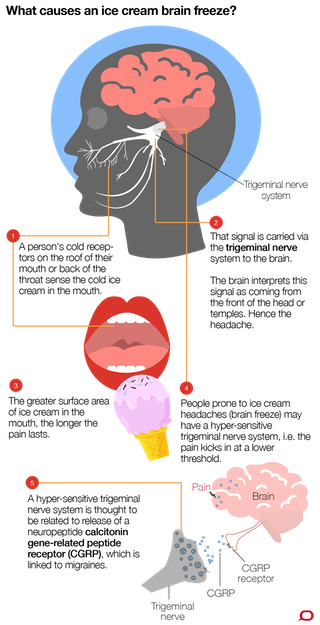The medical term for brain freeze is Phenpalatine Ganglionuralgia
This is just a fancy name for what is called a not so serious condition. Brain freeze, unfortunately, is the body's response to eating too much too quickly.
Brain freeze has a number of different triggers. For instance, food that is very cold does not cause brain freeze because it does not affect the blood flow in the brain. However, if you consume too much food too quickly, your brain cells start to die.
Sometimes, this causes a choking feeling and a lack of coordination. A sudden loss of vision is also a common symptom. This can cause the person to feel drowsy. They may experience a drop in their IQ.
While this condition affects the brain itself, it can also affect other parts of the body as well. People who suffer from brain freeze often experience numbness, tingling, and even seizures.
There are a number of symptoms to look out for, ranging from temporary muscle weakness to temporary paralysis. You may also have trouble talking or concentrating. You may feel that you are unable to move. You may also be unable to swallow.
While many people believe that the brain is frozen, they do not understand why it happens. Scientists do not understand it entirely, but some research suggests that it has to do with what we eat. The human body makes a natural hormone called serotonin. Serotonin is the chemical that keeps us calm, happy, and in good moods.
When the body cannot produce enough serotonin, it may stop producing the chemicals that allow the brain to communicate with the nervous system. As a result, the body freezes up, making the person unable to do anything.

If you think that you may have this condition, you should try to reduce or eliminate your consumption of foods that contain aspartame, artificial sweeteners, aspartame itself, L-carnitine, and MSG, and foods containing caffeine. Because these can all inhibit the production of serotonin, you should try to find some other foods to replace them.
Another reason that might make you think that you have brain freeze is because you think that you cannot think straight or have trouble concentrating. If you think that your attention span is short, you may have this problem, or at least, you are willing to try to improve it.
Although the condition does not actually affect the brain directly, it can affect how you perceive the information that enters your brain. In other words, if you think that your memory is bad, you may experience the symptoms of brain freeze.
Symptoms that are likely to be experienced include headaches, blurred vision, dizziness, difficulty thinking, fatigue, a loss of consciousness, and confusion, difficulty concentrating, nausea, irritability, and even panic attacks. It can also cause depression and anxiety.
If your symptoms persist, talk to your doctor about it. He or she can test you for some medical conditions, such as seizures or Alzheimer's disease. Once your doctor suspects that you are having the symptoms, you will be given treatment to correct it.
While you may think that the symptoms are temporary and will go away on their own, that is not always the case. They may get worse over time. Sometimes, you will have to take medications to relieve your symptoms.
You should be aware that it is not normal for you to get a headache, nausea, difficulty concentrating or memory issues. These symptoms occur when your body feels cold. So if you experience them during the day, your body might be feeling cold and the symptoms will be caused by the temperature in your body.